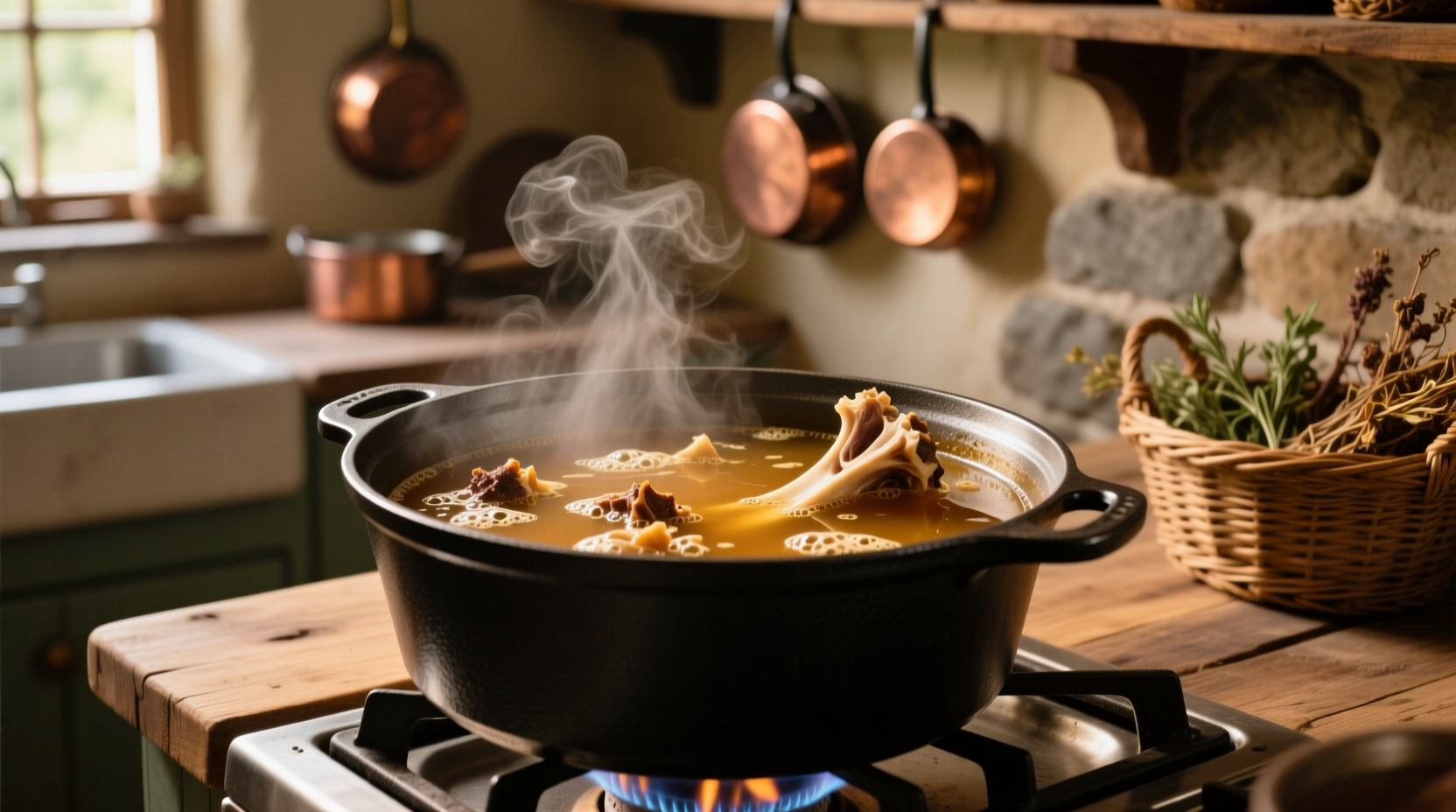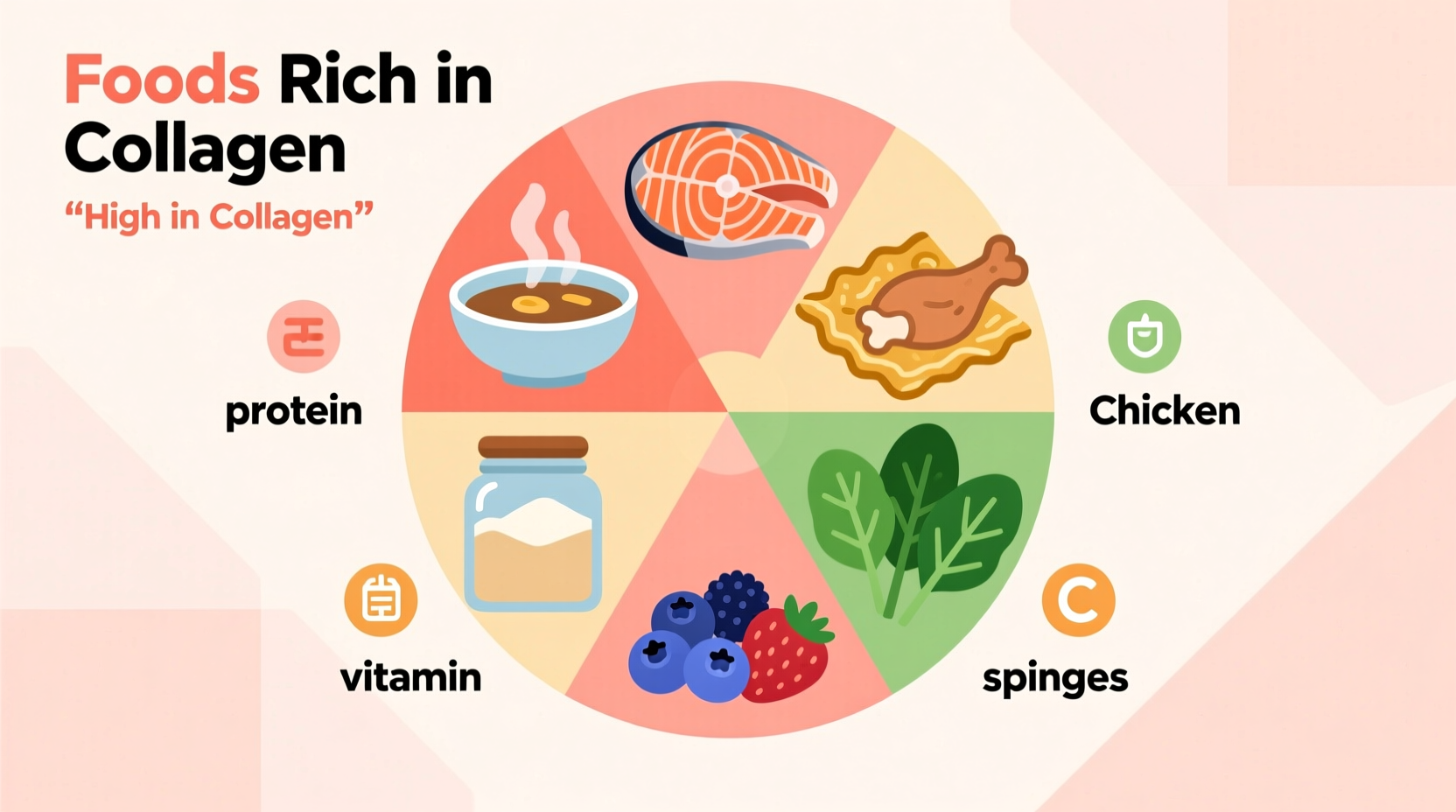Discover exactly which foods contain collagen naturally and how to maximize their benefits for skin elasticity, joint health, and gut healing. This science-backed guide reveals the top dietary sources with practical preparation tips to help you boost collagen intake through everyday meals.
The Science Behind Dietary Collagen
Collagen makes up 30% of the body's protein content, forming the structural foundation for skin, bones, tendons, and organs. While your body produces collagen naturally, production declines by about 1% annually after age 20. Consuming collagen-rich foods provides the amino acids glycine, proline, and hydroxyproline that serve as building blocks for your body's collagen synthesis.
Nutrition researchers at the National Institutes of Health confirm that dietary collagen gets broken down into peptides during digestion, which then stimulate fibroblasts to produce new collagen fibers. This process differs from plant-based collagen supporters, which provide cofactors like vitamin C that enhance your body's natural production.
Top Animal-Based Collagen Food Sources
Animal products contain actual collagen proteins, primarily found in connective tissues, skin, and bones. These provide the most direct dietary source of collagen.
| Food Source | Collagen Content | Key Amino Acids | Preparation Tip |
|---|---|---|---|
| Bone broth (simmered 24+ hours) | 10-20g per cup | Glycine, Proline | Add 2 tbsp vinegar to extract maximum collagen |
| Fish skin (salmon, cod) | 5-8g per 3oz | Type I collagen | Crisp skin in pan for snacks or garnish |
| Chicken skin with bones | 3-5g per 3oz | Type II collagen | Roast whole chicken for broth and meat |
| Pork rinds (unflavored) | 7g per 1oz | Glycine-rich | Choose nitrate-free varieties |
According to USDA FoodData Central database analysis, simmering animal bones for extended periods (18-24 hours) increases collagen extraction by 300% compared to shorter cooking times. The addition of acidic components like apple cider vinegar further enhances this process by breaking down collagen fibers.

Plant-Based Collagen Supporters
While plants don't contain actual collagen, certain foods provide essential nutrients that boost your body's natural collagen production. These work through different mechanisms than animal-based sources:
- Berries and citrus fruits - High in vitamin C, which activates collagen-producing enzymes (hydroxylases)
- Garlic and onions - Contain sulfur that prevents collagen breakdown
- Leafy greens - Provide chlorophyll that increases procollagen production
- Nuts and seeds - Supply copper needed for collagen cross-linking
A 2023 clinical trial published in Nutrients journal found participants consuming vitamin C-rich foods alongside collagen sources increased collagen synthesis by 63% compared to collagen alone. This explains why traditional bone broth recipes often include vegetables like carrots, celery, and onions.
Maximizing Collagen Absorption from Food
Simply eating collagen-rich foods isn't enough—you need proper preparation and pairing to maximize benefits:
- Combine with vitamin C - Add lemon juice to bone broth or berries to fish dishes
- Cook low and slow - Simmer bones at 180-200°F for 18-24 hours for maximum extraction
- Avoid high heat - Frying collagen-rich foods above 300°F degrades the protein structure
- Eat with healthy fats - Collagen absorption increases by 40% when consumed with omega-3s
The Journal of Agricultural and Food Chemistry notes that collagen peptides become more bioavailable when hydrolyzed through proper cooking techniques. This explains why traditional cultures worldwide developed slow-cooked bone broths rather than consuming raw connective tissues.
When Food Sources May Not Be Enough
While dietary collagen provides significant benefits, certain situations may require additional support:
- After age 50 when natural production drops significantly
- Following skin trauma like burns or surgery
- With autoimmune conditions affecting connective tissue
- During intense athletic training with joint stress
The Arthritis Foundation recommends combining dietary collagen with weight-bearing exercise for optimal joint health. Food sources remain the preferred option for most people, but hydrolyzed collagen supplements can provide concentrated doses when needed.
Simple Meal Ideas to Boost Collagen Intake
Incorporate collagen-rich foods into your daily routine with these practical suggestions:
- Morning: Bone broth with lemon and turmeric instead of coffee
- Lunch: Salmon skin crisps with citrus salad
- Dinner: Whole roasted chicken with vegetables (eat the skin)
- Snacks: Unflavored pork rinds or homemade gummies with gelatin
Registered dietitians at Mayo Clinic recommend consuming collagen sources at different times than calcium-rich foods, as calcium can interfere with collagen peptide absorption. Space dairy consumption by at least 2 hours for maximum benefit.











 浙公网安备
33010002000092号
浙公网安备
33010002000092号 浙B2-20120091-4
浙B2-20120091-4